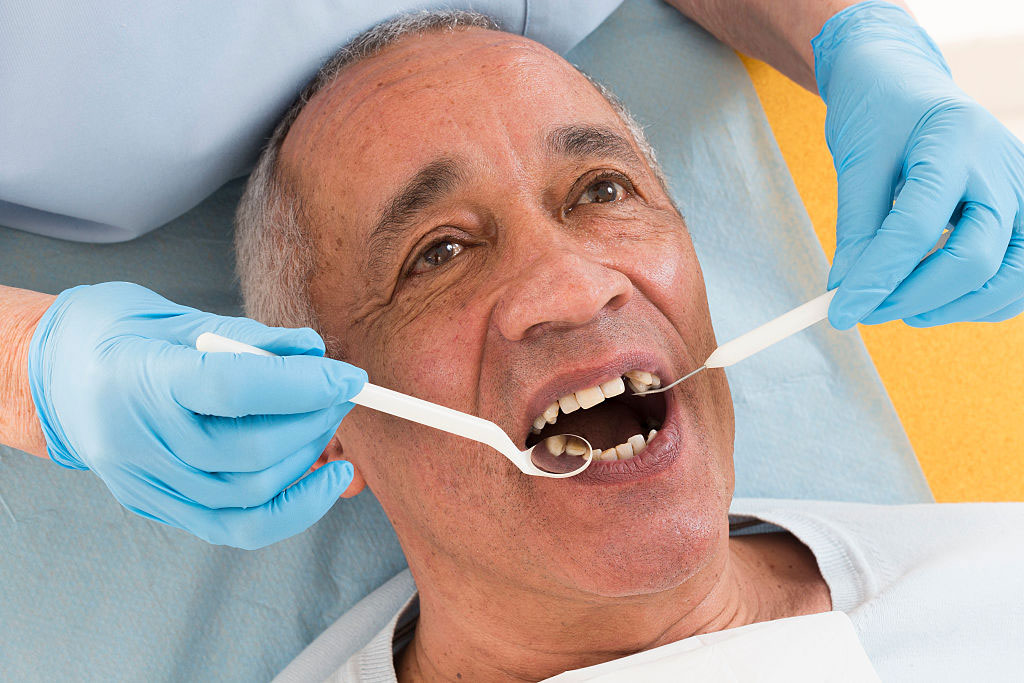How to Protect Your Teeth as You Age

Loosing your teeth as you age is not inevitable. Protecting your teeth, while essential at all ages, is especially important in your later years.
Although it may become less important to you as you age, good dental health is essential.
One common misconception is that losing your teeth is inevitable. That’s just not true. With proper care, your teeth can last a lifetime.
YOU MIGHT ALSO LIKE: How to Keep Your Gums Healthy
Cavities occur at any age
There’s also the misconception that cavities are a young person’s disease. That’s also not true. The longer you keep your teeth, the more problems can occur. Cavities can be a problem at any age; they just may occur in different sites of your mouth as you age because your gums tend to recede.
Modern dentistry emphasizes prevention through good dental self-care, which means you have more ways than ever to protect your teeth in your senior years.
Very small cavities, for example, can be recalcified, meaning that minerals lost to the decay process can be restored to your teeth, stopping a cavity in its tracks. If you see a dentist regularly, he or she can monitor previous fillings, crowns, or any dental restoration to see if you need further repairs.
The longer you wait to replace dental restorations, the more problems you’ll have. Decay in your teeth can spread and undermine your previous dental work, reaching nerves and prompting the need for root canal surgery.
Make sure you use an American Dental Association-approved fluoride toothpaste. Fluoride works to prevent cavities in seniors as much as it does in children.
You might want to use an electric toothbrush. Some seniors have less motor control than when they were younger. An electric brush can clean your teeth, helping you if your motion is limited.
Grinding your teeth, damage from medicaton, and dry mouth
If you grind or clench your teeth during sleep, use a nightguard. People who grind their teeth can wear away a millimeter of tooth structure every year if the problem goes undiagnosed.
Older people also tend to take more medications for a wide range of conditions. More than 400 drugs can cause dry mouth, a threat to dental health because it greatly reduces all-important saliva, which coats your teeth to protect them against disease.
To fix the problem, you can sip water during the day. You can also chew gum. Your dentist may have you use a prescription or non-prescription saliva substitute if your dry mouth is bad enough.
Gum disease
If your gums are red, swollen, and bleed easily, you have gingivitis, an early form of gum disease that can progress to a more dangerous problem called periodontitis. Once you have periodontitis, harmful bacteria have formed pockets under your gums and begin to dissolve the bone that holds your teeth in place. It’s the primary reason for tooth loss.
But it doesn't have to happen. The best way to combat periodontal (gum) disease is regular dental visits, where you receive cleanings and oral exams that can catch gum disease in the early stages and reverse it.
Oral cancer
More than 50,000 Americans are diagnosed with oral cancers each year, and more than 11,000 die from it, according to American Cancer Society. Your chances of getting oral cancer increase as you grow older.
Only about half of people who develop oral cancer survive the disease. The best hope for survival is to discover it at its earliest stages — when there is an 80 percent chance of surviving for five years. That’s another reason for regular dental visits.
Your teeth move as you age
Tooth crowding is another common problem for older adults that can lead to dental disease. Your teeth tend to move over the years, making them harder to clean properly. Misaligned teeth can also erode tooth enamel and damage supporting tissue and bone.
If your teeth have shifted a lot, an orthodontist can fit you with a retainer or other devices to stop and even reverse the problem.
Keeping your teeth for a lifetime is the norm today. But you need to maintain regular dental visits and practice good oral hygiene at home to protect your teeth as you age, just as you would when you were younger.
Updated:
August 15, 2023
Reviewed By:
Janet O’Dell, RN